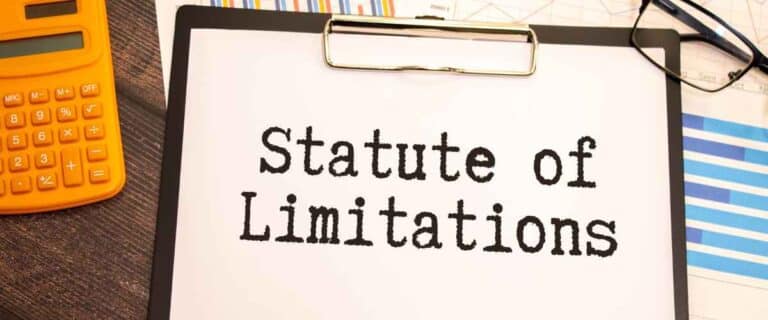After a personal injury accident, many people are focused on the physical injuries you sustain. However, emotional distress is also a huge factor for many accident victims.
A serious car accident, dog attack, slip and fall, or another incident can cause serious mental anguish and emotional scarring. The psychological trauma you experience due to someone else’s negligence is something you can recover compensation for.
Because it is more challenging to prove emotional distress, we recommend contacting our experienced Seattle accident lawyer as soon as possible. We can review your case and help you recover the full compensation you are entitled to.
Understanding Emotional Distress in Personal Injury Cases
Emotional distress, also known as mental anguish, involves the psychological impact an accident or injury has on a victim. It can manifest in various forms, including anxiety, depression, post-traumatic stress disorder (PTSD), loss of enjoyment of life, and sleep disturbances. These conditions can linger long after the physical injuries have healed, profoundly impacting an individual’s quality of life.
The role of personal injury lawyers in Seattle is pivotal in recognizing and validating their clients’ emotional suffering. It’s essential to understand that emotional distress is not a secondary concern but a significant component of the victim’s overall well-being and recovery.
The Legal Framework for Emotional Distress Claims
Seattle accident lawyers are well-versed in the legal framework surrounding emotional distress claims. These claims can be complex, as emotional distress is subjective and lacks the tangibility of physical injuries.
However, with the right approach and expertise, it is possible to construct a compelling case that accurately represents the emotional and psychological damages suffered by the victim.
Documentation and evidence are key to successfully claiming emotional distress. This may include medical records, psychological evaluations, and testimony from mental health professionals. Furthermore, personal diaries, witness statements, and even photographic evidence can be instrumental in painting a comprehensive picture of the victim’s emotional state post-accident.
Challenges in Proving Emotional Distress
One of the primary challenges faced by personal injury lawyers in Seattle when addressing emotional distress claims is the burden of proof. Demonstrating the extent of psychological suffering and linking it directly to the accident requires an experienced attorney.
Additionally, the subjective nature of emotional distress can sometimes lead to skepticism from insurance companies and opposing legal teams. They may attempt to downplay the severity of the emotional impact or argue that pre-existing conditions are responsible.
This is where the expertise of seasoned Seattle accident lawyers becomes invaluable. Their experience and understanding of navigating these challenges can make all the difference in securing fair compensation for their clients.
The Role of Seattle Accident Lawyers
Seattle accident lawyers play a crucial role in advocating for personal injury victims. Their understanding of local laws and regulations, combined with their experience in handling emotional distress claims, positions them uniquely to support their clients through these challenging times.
A key part of their role involves legal representation and providing a support system for the victims. They help navigate the complexities of the legal process, offering guidance and ensuring that their client’s rights are protected at every step.
Strategies for Addressing Emotional Distress Claims
Effective strategies for addressing emotional distress claims involve a combination of legal expertise, comprehensive evidence gathering, and empathetic client support.
Here are some approaches employed by Bernard Law Group:
- Personalized Representation: Every case is unique, and personalized attention ensures that each client’s specific emotional distress experiences are fully understood and accurately represented.
- Expert Witnesses: It is crucial to collaborate with psychologists or psychiatrists who can provide expert testimony regarding the client’s emotional distress. Their insights can significantly strengthen the case.
- Detailed Documentation: Keeping detailed records of the emotional and psychological impact, including therapy sessions, medication, and personal accounts, adds weight to the claim.
- Negotiation and Litigation: Skillful negotiation is often required to reach a fair settlement. However, if necessary, Bernard Law Group is prepared to litigate to ensure justice for our clients.
Securing Justice and Compensation
At Bernard Law Group, our personal injury lawyers in Seattle are committed to securing justice and fair compensation for personal injury victims, including those suffering from emotional distress. We understand the impact of emotional suffering on an individual’s life and strive to ensure that this aspect is not overlooked in the legal process.
Victims of personal injuries deserve comprehensive representation that addresses all facets of their suffering, including emotional and psychological damages. Our team in Seattle is dedicated to providing that representation, ensuring that our clients receive the support, justice, and compensation they deserve.
Addressing emotional distress claims in personal injury cases requires understanding the legal and emotional complexities involved. With the expertise of Bernard Law Group’s Seattle accident lawyers, victims can navigate these challenges more effectively, paving the way for a more comprehensive and fair resolution.




